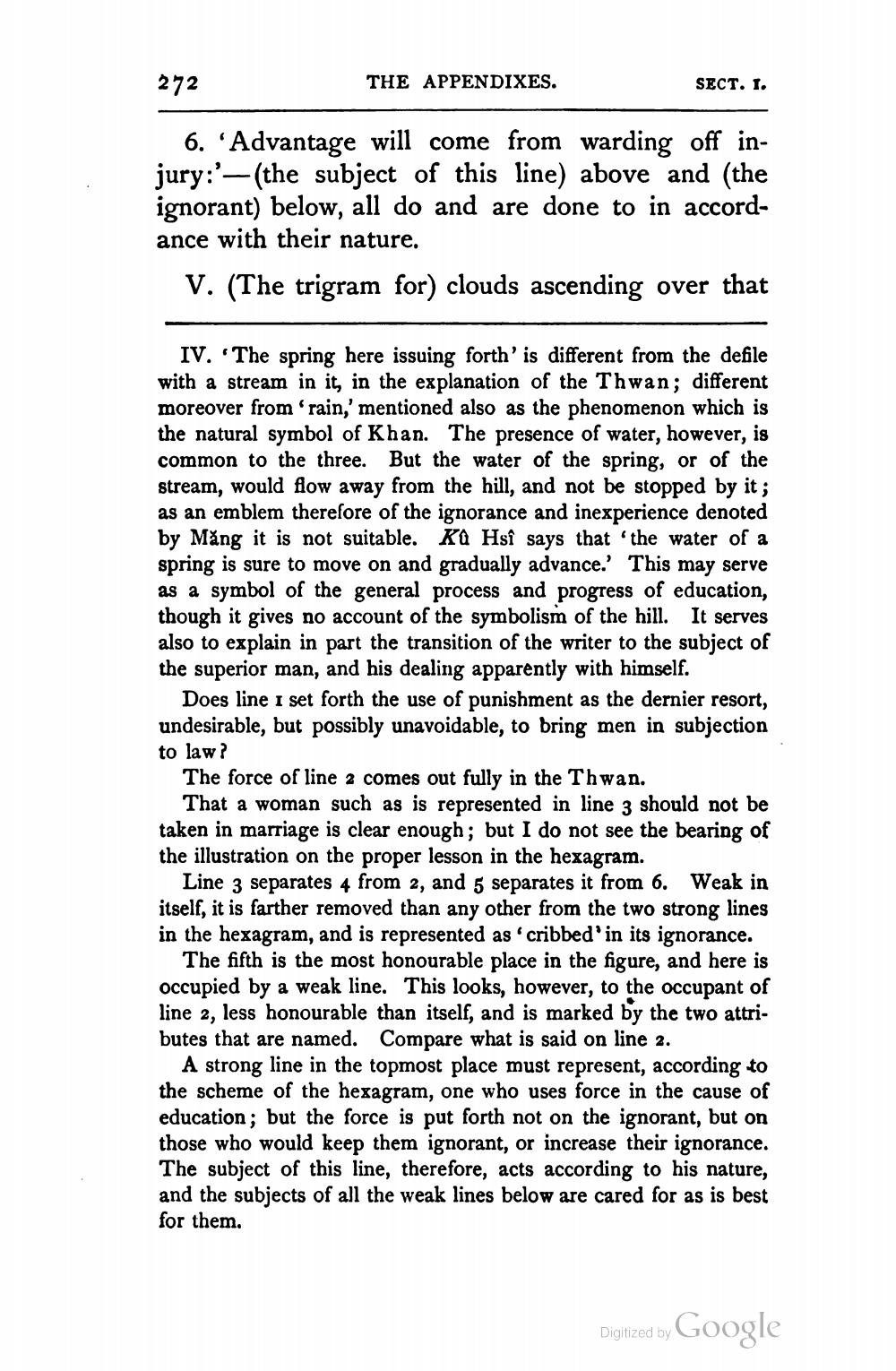________________
272
THE APPENDIXES.
SECT. I.
6. 'Advantage will come from warding off injury:'-(the subject of this line) above and (the ignorant) below, all do and are done to in accordance with their nature.
V. (The trigram for) clouds ascending over that
IV. The spring here issuing forth' is different from the defile with a stream in it, in the explanation of the Thwan; different moreover from rain,' mentioned also as the phenomenon which is the natural symbol of Khan. The presence of water, however, is common to the three. But the water of the spring, or of the stream, would flow away from the hill, and not be stopped by it; as an emblem therefore of the ignorance and inexperience denoted by Măng it is not suitable. KQ Hss says that the water of a spring is sure to move on and gradually advance. This may serve as a symbol of the general process and progress of education, though it gives no account of the symbolism of the hill. It serves also to explain in part the transition of the writer to the subject of the superior man, and his dealing apparently with himself.
Does line I set forth the use of punishment as the dernier resort, undesirable, but possibly unavoidable, to bring men in subjection to law?
The force of line 2 comes out fully in the Thwan.
That a woman such as is represented in line 3 should not be taken in marriage is clear enough; but I do not see the bearing of the illustration on the proper lesson in the hexagram.
Line 3 separates 4 from 2, and 5 separates it from 6. Weak in itself, it is farther removed than any other from the two strong lines in the hexagram, and is represented as cribbed'in its ignorance.
The fifth is the most honourable place in the figure, and here is occupied by a weak line. This looks, however, to the occupant of line 2, less honourable than itself, and is marked by the two attributes that are named. Compare what is said on line 2.
A strong line in the topmost place must represent, according to the scheme of the hexagram, one who uses force in the cause of education; but the force is put forth not on the ignorant, but on those who would keep them ignorant, or increase their ignorance. The subject of this line, therefore, acts according to his nature, and the subjects of all the weak lines below are cared for as is best for them.
Digitized by Google




